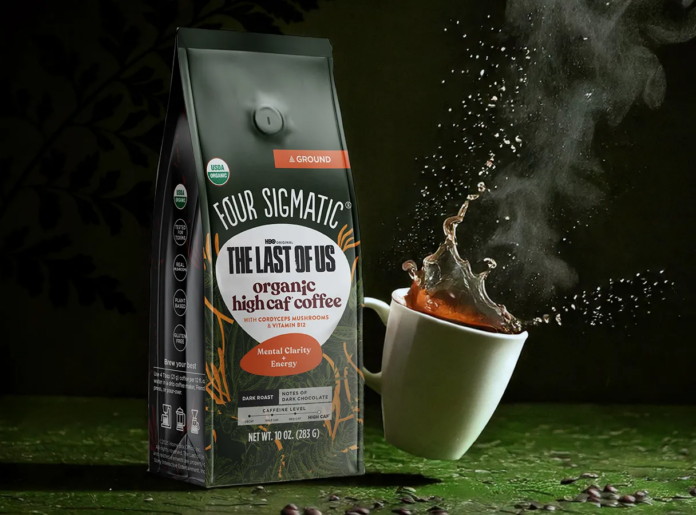
By Gary Feldon, partner at Hollingsworth LLP and Caroline J. Barker, associate at Hollingsworth LLP
Key Takeaways:
- PFAS consumer class action lawsuits are increasing, especially targeting food and beverage companies that market products as “pure,” “natural,” or “healthy,” with plaintiffs claiming they wouldn’t have purchased products if they knew PFAS were present.
- An upcoming EPA regulation requiring PFAS manufacturers to report their use from 2011-2022 in a public database (by January 2026) risks dramatically expanding litigation since plaintiffs may be able to pursue cases without product testing if they can reference this database.
- Food and beverage businesses should take proactive steps to manage litigation risk by ensuring regulatory compliance, obtaining adequate insurance, reviewing supplier relationships, examining marketing claims, and consulting specialized legal counsel.
Per- and polyfluoroalkyl substances (PFAS) are synthetic compounds sometimes called “forever chemicals” due to their extremely long-lasting chemical bonds. There has been growing public attention on the potential health impacts of PFAS, with litigation concerning PFAS exposure increasing concurrently. An Environmental Protection Agency (EPA) regulation will soon require PFAS manufacturers and importers to submit reports on their PFAS use between 2011 and 2022. The disclosures in those reports will likely pose downstream litigation risks for businesses that purchased products containing PFAS, even unknowingly. Combined with the emerging litigation trend of PFAS consumer class actions, these disclosures raise the very concerning prospect of runaway litigation. Businesses in the food and beverage industries — particularly businesses that market products as healthy, pure, or natural — are especially at risk and should consider affirmative steps to address this issue before litigation materializes.
Current legal landscape for PFAS consumer claims
There has been a growing trend of the mass tort plaintiffs’ bar filing class action lawsuits alleging mislabeling or false marketing of consumer products that purportedly contain PFAS as an ingredient or contaminant. These claims are very different from the major PFAS litigation that has occurred to date, which has been mostly based on either personal injury or damage to natural resources, like groundwater. Consumer claims are based on the allegation that consumers would not have purchased, or would have paid less for, products if PFAS had been disclosed as an ingredient or contaminant. The uniform damages in these claims make them especially attractive to the mass tort plaintiffs’ bar because claims alleging individualized injuries are generally not subject to certification as class actions under Federal Rule of Civil Procedure 23(a).
PFAS consumer claims frequently target the food and beverage industries, although the products at issue in this type of lawsuit have ranged from dog food to cosmetics. With food products, plaintiffs frequently allege that PFAS migrated into the food when they came into contact. For example, the Food and Drug Administration (FDA) authorized the use of PFAS in grease-proofing agents for paper and paperboard food packaging — like microwave popcorn bags and fast-food wrappers — until January 2025. Foods marketed as pure, natural, or healthy are favorite targets of PFAS consumer claims. For example, The Coca-Cola Company is defending claims that it falsely marketed its Simply Tropical® juice drink as “made simply” with “all-natural ingredients” when plaintiffs allege that the drink was contaminated by multiple PFAS compounds from manufacturing equipment and/or product packaging.
PFAS consumer claims pose a unique threat of runaway litigation. Courts considering consumer claims may focus entirely on consumer expectations rather than requiring that plaintiffs offer reliable scientific evidence demonstrating any actual health impact from the PFAS exposure at issue. Without a burden to show a health risk, plaintiffs’ main factual burden becomes only to show that the product at issue contained PFAS.
While seemingly an extremely low bar, many consumer claims have nonetheless stumbled over their inability to show a product contained PFAS. For instance, in Hernandez v. Wonderful Co. LLC, the plaintiff brought a proposed class action alleging that the pomegranate juice drink she purchased was deceptively marketed as healthy and pure when it purportedly contained PFAS. The district court dismissed the claims for inability to show an injury because the plaintiff did not allege that the drink she purchased (or even the same product sold in the same timeframe) had tested positive for PFAS. Other cases have been dismissed because the plaintiffs’ complaint relied on testing that was not specific to PFAS, like tests for organic fluorine. However, an upcoming deadline for public disclosure of products containing PFAS may functionally eliminate this limit on the unchecked proliferation of PFAS consumer claims.
Impact of upcoming EPA disclosures on PFAS consumer claims
Pursuant to the Toxic Substances Control Act, the EPA added broad classes of PFAS to its list of substances subject to a mandatory reporting requirement. Under this rule, companies that manufactured or imported substances and products containing these PFAS between 2011 and 2022 are required to disclose information regarding their PFAS use. Required details include PFAS used and amounts, chemical information, downstream byproducts, all “existing information” concerning environmental and health impacts, potential employee exposure, and disposal methods. The information is all headed to an existing EPA database for this type of chemical information known as the “Central Data Exchange” (CDX). The reporting deadline is currently January 11, 2026, with small businesses having an additional six months to report. EPA delayed this deadline in October 2024 because CDX was not yet capable of housing the anticipated volume of information.
Including PFAS in CDX may effectively eliminate the last check on runaway PFAS consumer class action litigation. In a recent consumer class action case alleging that the defendant’s butter had been contaminated with PFAS from its packaging, the district court allowed the case to proceed into discovery despite the plaintiff’s failure to test the butter for PFAS. The court reasoned that the fact that the butter had been recalled in response to a New York State ban on PFAS in food packaging was sufficient to raise a reasonable inference that PFAS had migrated into the butter the plaintiff had purchased. If even a few courts were to analogously hold that a lawsuit could proceed into discovery without testing the product plaintiff purchased whenever a CDX report indicates PFAS might be present, it could open the floodgates to the mass tort plaintiffs’ bar indiscriminately filing proposed PFAS consumer class action lawsuits without doing any real pre-filing due diligence.
PFAS use information being publicly available in CDX may also dramatically expand the number of businesses targeted by PFAS consumer claims. Public disclosures about PFAS in consumer products consistently drive new litigation. Several class action consumer claims are directly traceable to past disclosures about the presence of PFAS in consumer products. For instance, a 2022 Consumer Reports article reporting on PFAS in food packaging led to consumer class action lawsuits against several of the restaurant chains and other food-related businesses named in the article. Once PFAS manufacturers’ and importers’ reports are available through CDX, it will be no great feat to trace the products downstream to the companies that used, sold, or distributed the products. Those downstream companies are likely to become ensnared in litigation, even if they were unaware of the presence of PFAS in the products. Indeed, businesses may even be unaware that their upstream suppliers will soon be submitting their reports on a decade of PFAS use to the EPA.
Managing the litigation risk of PFAS consumer claims
Executives in the food and beverage industry should be mindful of their PFAS litigation exposure, especially given the new EPA reporting requirements. We recommend a proactive approach to both avoid and prepare for litigation:
- Ensure ongoing regulatory compliance: Myriad federal and state laws and regulations govern PFAS use and disposal. Compliance with these rules help to shield a company from government action and liability from private litigants.
- Obtain and maintain adequate insurance coverage: Insurance for PFAS consumer claims may become significantly more expensive or difficult to obtain if they dramatically increase in number or litigation defense costs increase because more cases are moving into costly discovery. Additional insurance coverage may also be prohibitively expensive or entirely unavailable if a company waits until a lawsuit has already been filed.
- Revisit supplier relationships: Businesses should examine their supply chain and the contracts that control it. Companies can mitigate liability risk from suppliers by adding indemnification provisions, warranties, or representations concerning PFAS into supplier contracts. Businesses should consider identifying alternate suppliers early on, to minimize the possible disruption if an existing supplier cannot make the necessary guarantees.
- Review of marketing and public statements: A review of public statements and labels may also help avoid future litigation. This review would look for anything that could be misunderstood or perceived as an understatement of PFAS use or exposure that would open the door to false representation claims. If businesses intend to rely on the attorney-client privilege to protect their internal review and deliberations from disclosure in potential litigation, they should be cautious about using in-house counsel because of the increased possibility of inadvertently waiving privilege. Outside counsel may also be able to provide a more objective review.
- Retain litigation counsel early: For businesses that have reason to believe they may be subject to PFAS consumer claims, it is advisable to retain appropriate outside counsel with a specialty in mass tort litigation as early as possible to develop mitigation and response strategies. Proactively positioning a company for potential litigation can reduce the likelihood of that litigation materializing and dramatically improve outcomes when it does.
Businesses in the food and beverage industry — particularly those businesses that market their products as pure, healthy, or natural — are already the favored targets of the growing trend of PFAS consumer class actions. The increased publicity from the upcoming EPA deadline for public CDX reports on a decade of PFAS use will likely fuel increased litigation. The possibility that courts could allow plaintiffs to proceed into discovery with only a CDX report instead of reliable PFAS testing poses the troubling prospect of runaway litigation. Businesses in the food and beverage industries should take steps now to proactively address existing litigation risk and limit potential future liability.
 Gary Feldon is a partner in Hollingsworth LLP’s Complex Litigation, Pharmaceutical & Medical Device, and Toxic Torts & Products Liability groups. At Hollingsworth LLP, he has defended multiple mass tort claims alleging inadequate warnings on FDA-approved pharmaceuticals. Feldon was also part of the trial team that won a full defense verdict against a lawsuit concerning a medical device sterilization company’s use of ethylene oxide.
Gary Feldon is a partner in Hollingsworth LLP’s Complex Litigation, Pharmaceutical & Medical Device, and Toxic Torts & Products Liability groups. At Hollingsworth LLP, he has defended multiple mass tort claims alleging inadequate warnings on FDA-approved pharmaceuticals. Feldon was also part of the trial team that won a full defense verdict against a lawsuit concerning a medical device sterilization company’s use of ethylene oxide.
 Caroline J. Barker is an associate at Hollingsworth LLP where she focuses her practice on environmental toxic torts, class action litigation, natural resource damages suits, and CERCLA cost recovery actions. Barker’s work on groundwater and soil contamination cases in state and federal courts has involved PFAS, VOCs, SVOCs, and heavy metals.
Caroline J. Barker is an associate at Hollingsworth LLP where she focuses her practice on environmental toxic torts, class action litigation, natural resource damages suits, and CERCLA cost recovery actions. Barker’s work on groundwater and soil contamination cases in state and federal courts has involved PFAS, VOCs, SVOCs, and heavy metals.

Credit: Source link




![[Webinar] From Selection to Success: Navigating the Food & Beverage ERP Journey [Webinar] From Selection to Success: Navigating the Food & Beverage ERP Journey](https://foodindustryexecutive.com/wp-content/uploads/2025/03/ECI_From-Selection-to-Success-Navigating-the-Food-Beverage-ERP-Journey-696x464.png)


![[Report] 2025 State of Food Manufacturing: Digital Transformation [Report] 2025 State of Food Manufacturing: Digital Transformation](https://foodindustryexecutive.com/wp-content/uploads/2025/04/2025-State-of-Food-Manufacturing_-Digital-Transformation-696x538.png)





